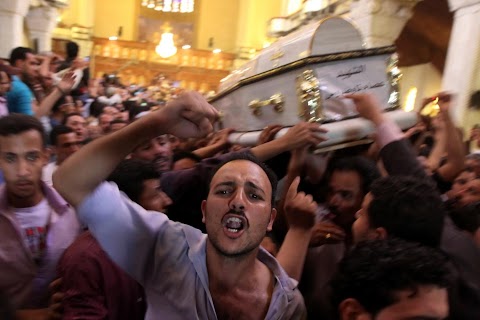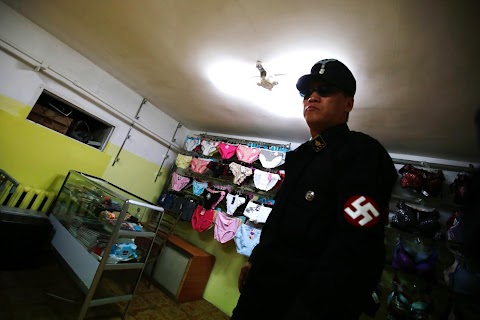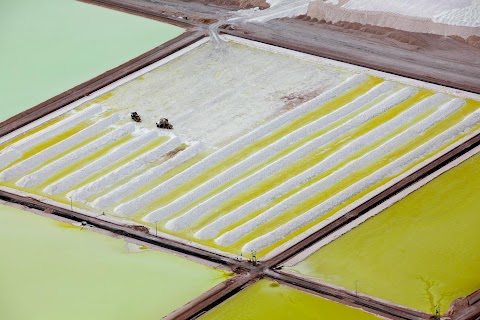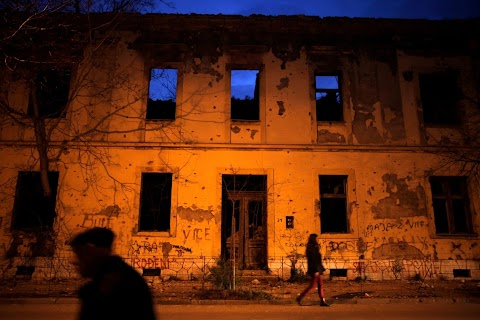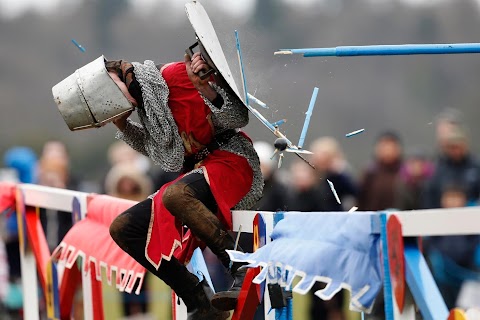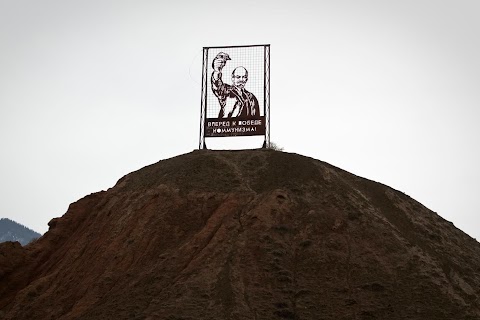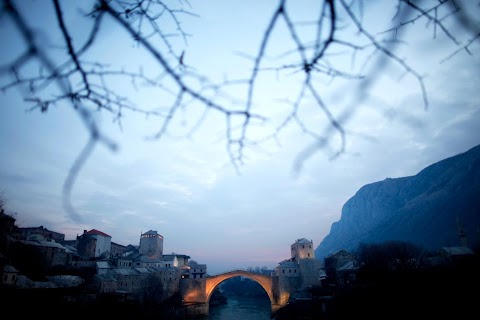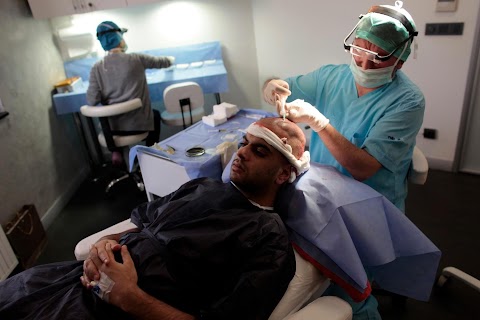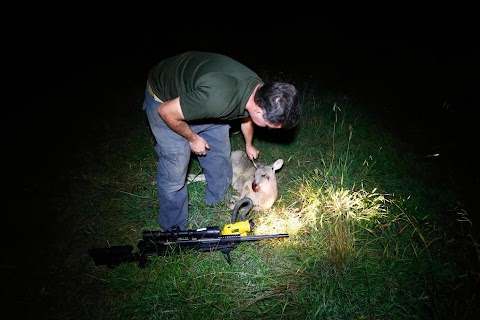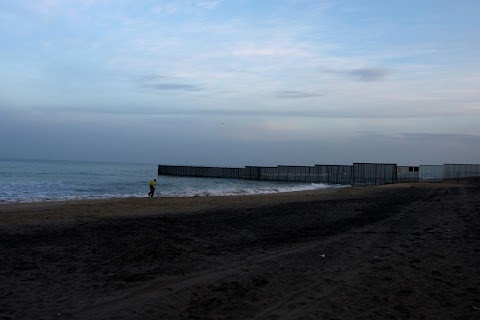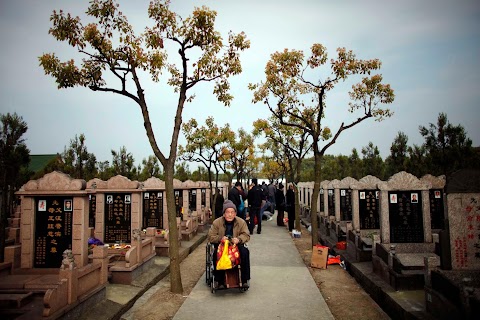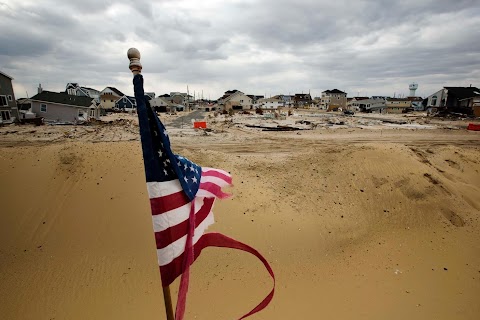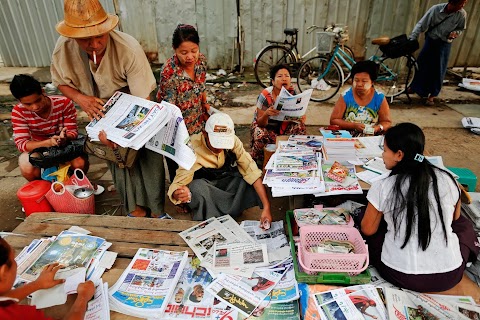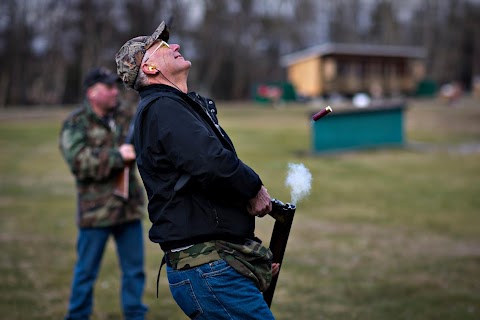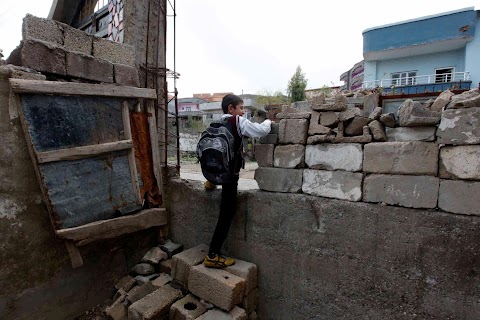
Kurdish Family Anxious for Peace
 Umit Bektas
Umit Bektas
Ferhat Savun, 11, is one of eight children born to Kurdish parents living in a small, three-room house near Turkey’s Syrian border.
With a fledgling peace process underway between Turkey and the Kurdistan Workers Party (PKK), he and his family are longing for a future where their people are at peace.

Mehmet Emin Savrun, 36, and his wife Hayriye, 35, pose for a picture with their eight children. Mehmet Emin and many others like him are anxious for peace after three decades of fighting between PKK fighters and Turkey, a conflict that killed some 40,000 people.
Pro-Kurdish politicians are focused on boosting minority rights and stronger local government for the Kurds, who make up about 20 percent of Turkey's population of 75 million people.

Ferhat goes to a local school along with four of his siblings. Their father, who had no education as a child, is determined to keep them there as long as he can afford to.
Slideshow

Hayriye Savun and her eight children live in a small house in the town of Cizre, in Turkey's Sirnak province.

She, her husband and their children eat breakfast together sitting on the floor.

Ferhat Savun goes to the local primary school and, like around 200 others in Cizre, he has signed up for two hours a week of elective Kurdish language classes, which recently became available.

Abdurrahman Savun, aged 6, uses the family TV as a mirror to comb his hair. Like his brother, he also attends the nearby school.

Ferhat relaxes at home.

Mehmet Emin Savun (right) chats in front of a tea-house in the town of Cizre.
“Theirs is not an extraordinary story, but sometimes the least extraordinary stories reveal the most.”
Turkey’s fledgling peace process with the Kurdistan Workers Party (PKK) militant group is all over the headlines. After three decades of war, 40,000 deaths and a devastating impact on the local economy, everybody seems ready for peace.
TV news channels and newspapers are saturated with opinions and commentary from politicians, officials, academics and journalists on what appears to be the best hope yet of building a lasting peace agreement with Kurdish militants.
But what about ordinary people in Turkey’s southeast, those most directly affected? How do they view the peace process and how might their lives change?
Eager to find out, I travelled to southeastern Turkey to cover Newroz, the Kurdish New Year celebrations, on March 21. In the town of Cizre, near the border with Syria, with the help of a local journalist, I found the Savun family and spent the weekend with them. Theirs is not an extraordinary story, but sometimes the least extraordinary stories reveal the most.
This is the tale of the Savun family:
Mehmet Emin Savrun, 36, lives with his wife Hayriye, 35, and eight children in a small, three-room house in Cizre. He relies on an old TV set to find the latest news about the peace process. He has two succinct comments on a plan being pursued by Prime Minister Tayyip Erdogan and the PKK‘s jailed leader Abdullah Ocalan, who called for a ceasefire on Newroz. “Peace is good,” he says. “Fighting is a sin.”
Mehmet Emin has had no schooling. When a school was first opened in his village, the teacher looked at how tall he was and rejected him from the class, deciding he was obviously too old to attend with the younger children. Mehmet Emin had no legal identity documents to show his age. “The teacher’s name was Mustafa. I will never forgive him,” he says. Learning to speak Turkish and rudimentary literacy only came when he was doing his compulsory military service at the age of 20.
Life in Mehmet Emin’s home village of Akcay on the edge of Mount Gabar was disrupted when the conflict began. His father refused to become a state-paid village guard to fight against the PKK. Forced to evacuate their village, the family moved to Cizre when he was eleven. He has lived here ever since, grown up and married. He did his best never to become involved in the conflict.
But events have left deep marks on his life, a fact that is reflected in the names of his children. His only daughter is named after Leyla Zana, a Kurdish politician who was still serving a long jail term when the baby was born. Influenced by a peace initiative in 2009, he named one son Baris (meaning peace in Turkish) and another Botan, the Kurdish name for the region around his village and Cizre.
In search of money to look after his family, Mehmet Emin travelled to cities including Kayseri, Alanya in Turkey and Erbil in northern Iraq to work as a construction labourer. None turned out to be permanent and he always returned to Cizre. These days, he sells tomatoes and cucumbers in a small handcart with his 16-year-old son Kadir. He usually makes about 20 Turkish Lira a day but on lucky days he can make 50 – the equivalent of 22 U.S. dollars. “50 lira is good money,” he says.
Five of his eight children go to school and Mehmet Emin is determined to keep them there as long as he can afford to. Leyla, Ferhat, Osman, Mehmet, Zeki and Abdurrahman attend the primary school near their home. Ferhat is 11 and his teacher says he is bright but a bit unruly. He has signed up for two hours of elective Kurdish language classes a week, a new opportunity which some 200 students in Cizre have taken up. They have a Kurdish-speaking teacher, something unthinkable in the past when the Kurdish language was officially banned, although Ferhat says he would not have missed much if he had not taken this course as he already speaks Kurdish. “I also know the letters”, he says.
“What Kurds need is to have their education conducted in Kurdish. And take all courses in their mother tongue,” said another Kurdish-speaking teacher in Cizre.
The streets in Cizre, a town of 100,000 people, ring to the sound of thousands of people like Mehmet Emin Savrun and his son Kadir, all trying to earn their livelihood during the daytime. The nights are generally quiet, despite the occasional blast of a percussion bomb and sirens.
Ferhat borrows my camera to take pictures of the bustling streets. As he snaps the statue of Atatürk in the town square, he comments in a very matter-of-fact way: “ They’ve bombed it again but it hasn’t fallen down.” I realise then the reason for the blast that woke me from my sleep in my hotel bed the night before.
Mehmet Emin, Ferhat and millions like them are anxious for peace, and they hope it will bolster economic development. Mehmet Emin has a short definition for the peace process: “Can anyone who does not want peace be human?”
